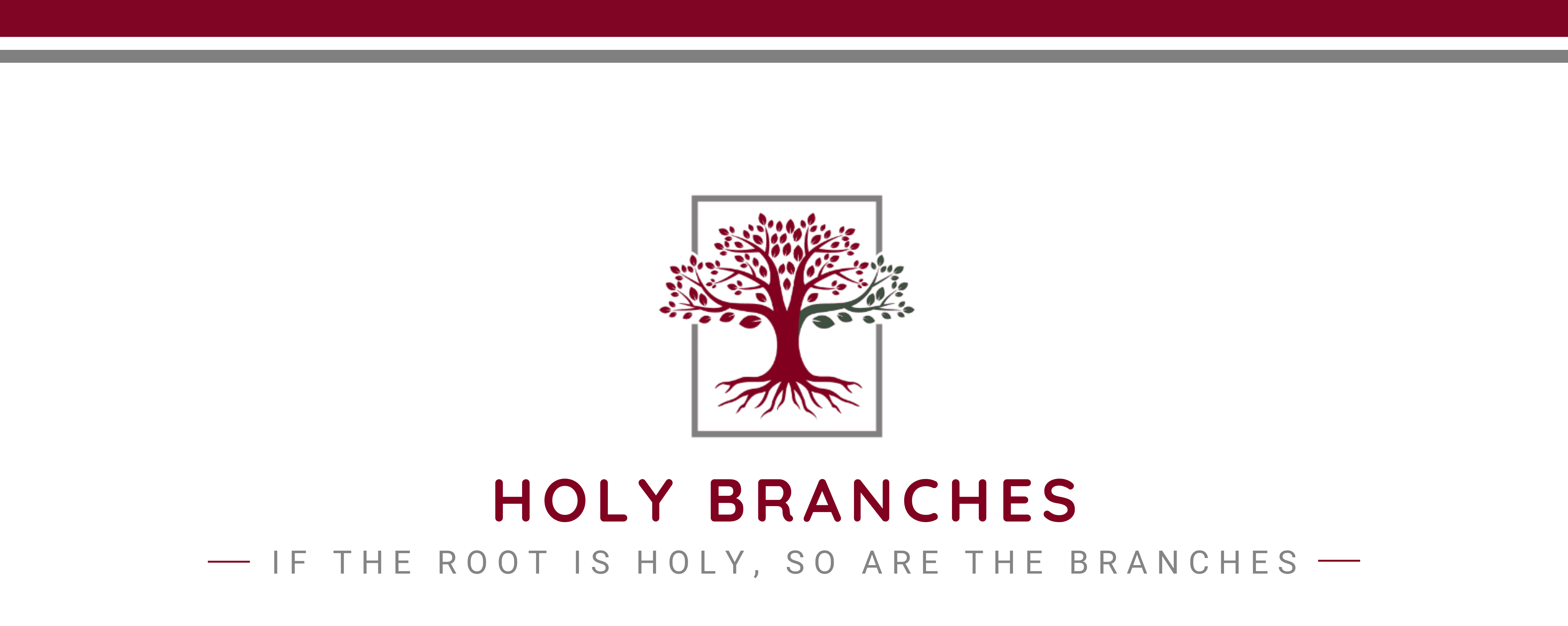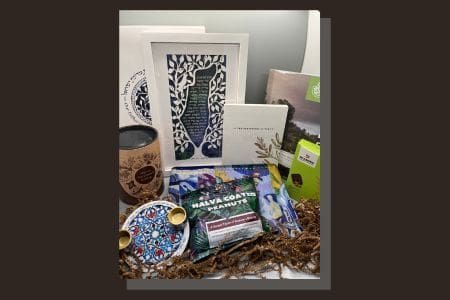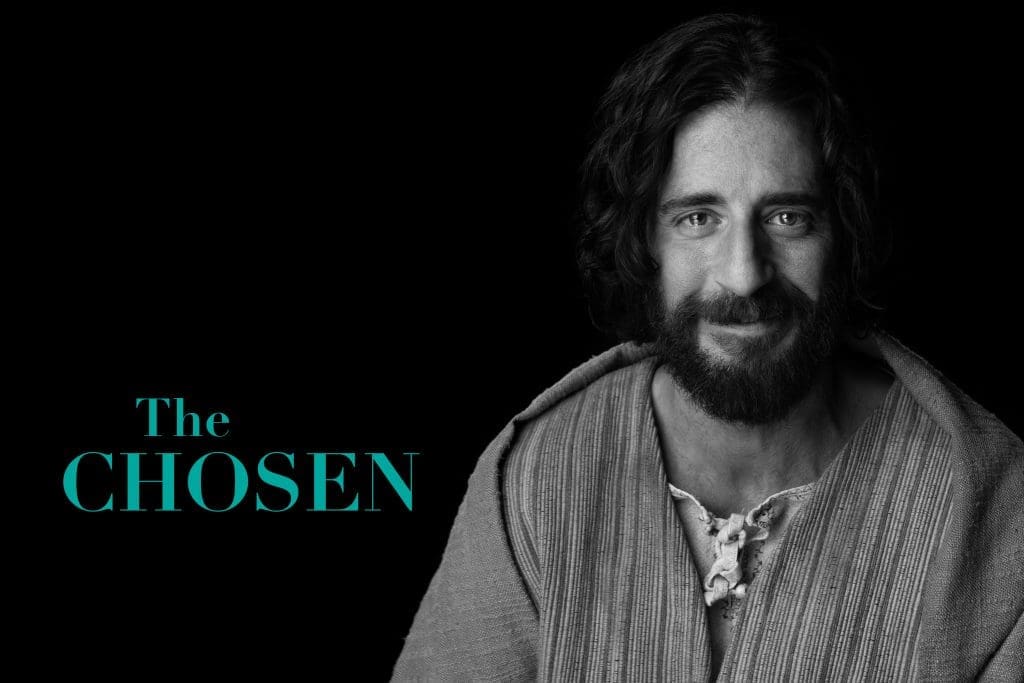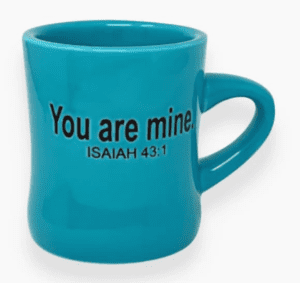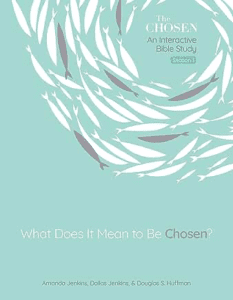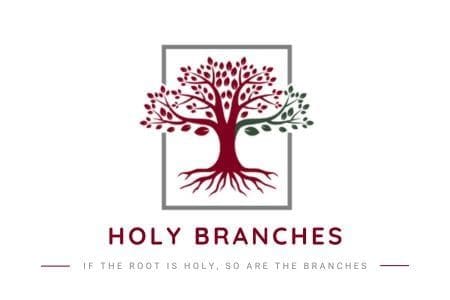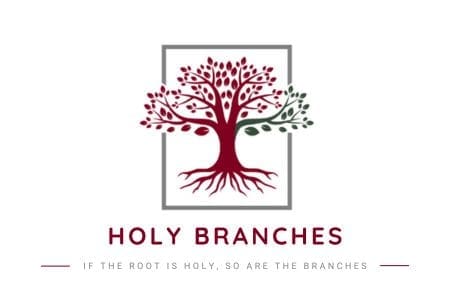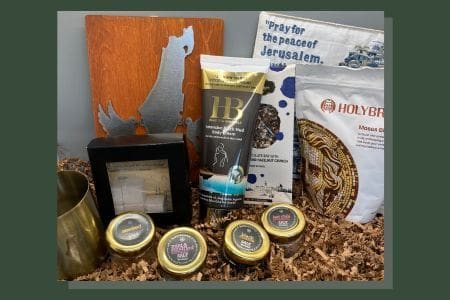Gifts from the Holy Land: Artza Box: Genesis

Discover Artza Boxes, a monthly subscription service delivering handcrafted treasures from local artisans in the Holy Land straight to your door. Each quarter, you’ll receive a thoughtfully curated box with a unique theme, featuring an array of items such as gourmet foods, home décor, artisanal crafts, and educational materials. Dive deeper into the experience with included insights about the talented artisans behind these creations, fostering a meaningful connection to the Holy Land. Perfect as a gift or a special treat for you and your loved ones, Artza Boxes bring joy and inspiration with every delivery!
Use coupon code HEBREW20 to receive a 20% discount
on your Artzabox subscription!

This quarter’s Artza Box, themed around Genesis, celebrates creation and new beginnings. One thing you may find interesting is that some of the items included are on the subject of Shabbat, the Sabbath. The connection is what’s celebrated on the Sabbath – creation. Each Sabbath, we say the Kiddush, Genesis 2:1-3, “
Every item in the box is thoughtfully selected to reflect the essence of Genesis – creation and new beginnings. Here’s what you’ll find inside.
The included booklet features Banias, a breathtaking region of verdant landscapes and flowing waters, also known as Caesarea Philippi. This historic site holds profound biblical significance as the place where Jesus asked his disciples, “Who do you say I am?” prompting Peter’s powerful confession that Jesus is the Messiah (Matthew 16:13-20).
Today, Banias is a vibrant destination within the Banias Nature Reserve, drawing visitors to its stunning natural beauty and rich history. Explore the serene Banias Spring, marvel at the majestic waterfall, and wander through archaeological treasures, including the ancient Cave of Pan and Roman-era ruins. Perfect for pilgrims, history enthusiasts, and nature lovers, Banias offers a captivating blend of spiritual reflection and scenic wonder.

Yair Emanuel Hand-Painted Candle Holder Set
This lovely painted metal candle holder is my standout favorite from the box! Crafted by artist Yair Emanuel, celebrated for his vibrant and meaningful Judaica designs, it’s an ideal piece for an Erev Shabbat service, designed to hold two candles and adorned with the poignant Bible verse, “God saw that the light was good and He separated the light from the darkness” (Genesis 1:4) from the creation narrative. It elevates our Shabbat table with its beauty and pairs flawlessly with the Seven Days of Creation tray below. Emanuel’s other works, featured in past Artza Boxes, consistently bring such meaningful and stunning artistry to our collection.

Yair Emanuel Seven Days of Creation Serving Tray
This exquisite tray is also created by renowned artist Yair Emanuel. Perfectly suited for placement beneath the candle holder set in this box on your dining or display table, this painted metal tray serves as both a functional piece and a work of art. It vividly depicts the Seven Days of Creation, each panel illustrating a day of creation from the Genesis narrative with Emanuel’s signature blend of bold colors and intricate patterns. Ideal for Shabbat, holidays, or as a thoughtful gift, this Yair Emanuel creation brings spiritual depth and aesthetic elegance to any table.

Halva-Coated Peanuts
Halva, a Middle Eastern confection, offers a delightful, subtly sweet complement to crunchy peanuts, making these Halva Coated Peanuts an ideal snack. This treat celebrates the Holy Land’s heritage, with its packaging featuring Genesis 1:11: “Let the land produce vegetation: seed-bearing plants and trees on the land that bear fruit with seed in it…” A perfect blend of flavor and tradition, it’s a meaningful addition to any snack collection.

DeKarina Milk Chocolate Treats

Mixture for Challah Coating
This challah coating is a stellar addition to my family’s collection of challah recipes. We’ve tried numerous variations! This coating blends Za’atar, a vibrant Middle Eastern spice mix, with other Israeli herbs, creating a flavorful and visually stunning topping for challah or any bread loaf. Sourced from Derech HaTavlinim (The Spice Road Farm) in Bethlehem of Galilee, Israel, these spices are expertly crafted. Packaged by “In the Box,” a company empowering individuals recovering from addiction through employment and training, this coating delivers rich taste and meaningful impact.
Blessing for Israel Hand-Cut Paper Artwork

This framed artwork by Noa Attias captures the Holy Land’s splendor, depicting a native Israeli tree and bird that celebrate creation’s beauty. A lifelong artist, Attias infuses her work with the essence of meaningful traditions and events. The piece features a hand-cut tree shaped like Israel, enclosing a Hebrew prayer, translated in English as: “Our Father in Heaven, Rock and Redeemer of the people Israel: Bless the State of Israel, with its promise of redemption. Shield it with Your love; spread over it the shelter of Your peace. Guide its leaders and advisors with Your light and Your truth. Help them with Your good counsel. Strengthen the hands of those who defend out Holy Land. Deliver them; crown their efforts with triumph. Bless the land with peace, and its inhabitants with lasting joy”. A stunning and soulful addition to any home, this artwork radiates spiritual and cultural significance.

Genesis Journal
This exquisite journal celebrates the creation story in Genesis, adorned with Hebrew words, their meanings, and selected verses. Its hand-pressed paper pages, accented by simple illustrations, offer ample space for reflections on creation, Bible study, or personal thoughts. The cover, graced with a gold olive branch, features “In the Beginning” in both Hebrew and English. The Hebrew word Beresheet (בראשית), meaning “In the beginning” and the first word of the Bible, also names the Book of Genesis, the Torah’s opening book. Learn more about the Torah here.
Use coupon code HEBREW20 to receive a 20% discount
on your Artzabox subscription!
This quarter’s Artza Box is a radiant celebration of the Holy Land’s rich heritage, encapsulating the spirit of Israel through artisan-crafted treasures. Each item, from Hebrew-inscribed journals to Galilee-grown spice blends, weaves a story of faith, resilience, and tradition, inviting you to connect deeply with the land and its people. More than a subscription, it’s a meaningful journey that transforms unboxing into a moment of spiritual discovery. Perfect for enriching your own connection to Israel or gifting to someone who holds the Holy Land dear, this box brings the region’s timeless beauty and inspiration into your home. With every carefully curated piece, the Artza Box fosters reflection, gratitude, and a lasting bond with Israel’s sacred legacy.
